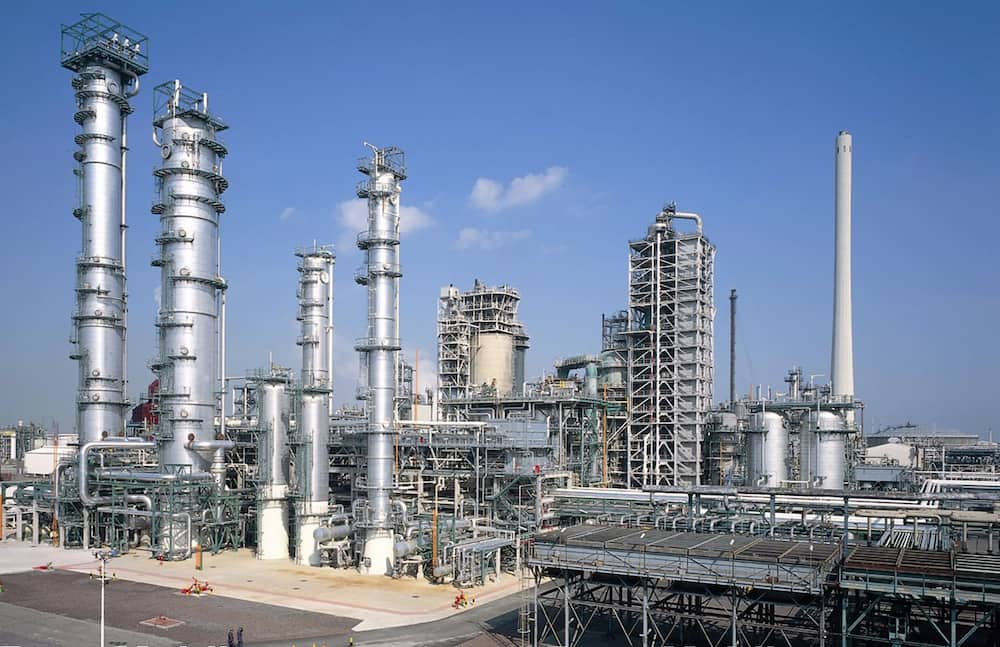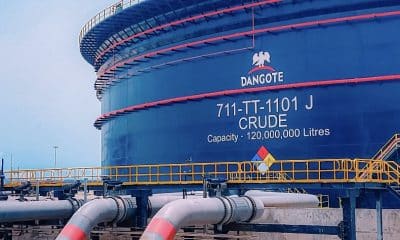Business
High Energy Costs Threatening Nigeria’s Manufacturing Sector

Manufacturers in Nigeria have expressed worries over the rising cost of energy which is directly affecting production ability.
The continuous foreign exchange crisis combined with high energy costs according to them has become a threat to Nigeria’s manufacturing sector which is contributing merely eight per cent to the Gross Domestic Product.
Reports confirmed that no fewer than 50 manufacturers exited the Nigerian market recently due to the forex crisis.
Since many of the companies cannot depend on power distribution companies for energy to use, they resolve to self-generation of more than 14,000 megawatts of electricity.
For this cause, Naija News understands that member companies of the Manufacturers Association of Nigeria spent N639 billion on alternative energy sources between 2014 and 2021.
The manufacturers spent N25bn in 2014, N59bn in 2015 and N129.95bn in 2016, a document gathered by The Punch revealed.
The document further revealed that the manufacturing companies spent N117.38 billion in 2017; N93.11 billion in 2018; N61.38 billion in 2019; N81.91 billion in 2020, and N71.22 billion in 2021 on the same cause.
The year-in-year-out figures varied due to the effects of inflation and the number of member companies in the association, among other factors.
“This is why we are talking about renewable energy today, especially solar, in addition to the regular gas and diesel-operated facilities,” Chairman, Manufacturers Power Development Company of the Manufacturers Association of Nigeria (MAN), Ibrahim Usman, told journalists in a telephone interview.
He added: “We have not utilised our natural endowments. In Morocco, Saudi Arabia, Algeria and several other countries, there are solar farms. We have sunlight in Nigeria and we need to start utilising it.”
In 2016, MAN set up a power development company to reduce high energy costs borne by factories across the country.
Two years before then, a Professor of Economics, Adeola Adenikinju, was said to have carried out a survey to determine how much self-generation capacity there was in the manufacturing sector.
The research, funded by the European Union and the German government, found that manufacturers’ self-generation capacity was 13,223MW as of 2013, Naija News understands.
Explaining the events, Usman said the self-generation capacity had exceeded 13,000 MW since then, with others saying it was between 14,000MW and 20,000MW.
Self-generation capacity means the quantity of power generated by manufacturers through diesel, gas, low-pour fuel oil and other forms of energy.
While other factors have not changed their negative impact on the production companies, the Russian invasion of Ukraine in February of 2022 saw the price of diesel rise three times against its normal cost. The development has sent several firms into temporary closures.
Manufacturers in Africa’s most populous nation obviously do not rely on power distribution companies as any interruption in their energy supplies can lead to shutdowns.
“Should manufacturing companies that are already battered with multiple taxes, poor access to foreign exchange and now over 200 per cent increase in price of diesel be advised to shut down operations? Should we fold our arms and allow the economy to slip into the valley of recession again?” Director-General of MAN, Segun Ajayi-Kadir, asked in a statement made available to news months ago.
He said “as a matter of priority,” the government must develop a National Response and Sustainability Strategy to address challenges emanating from the ongoing invasion of Ukraine by Russia.”
He urged the Federal Government to allow manufacturers and independent petroleum products marketing companies to import diesel from the Republic of Niger and Chad by immediately opening up border posts in that axis in order to cushion the effect of the supply gap driven by the high cost of the product.










